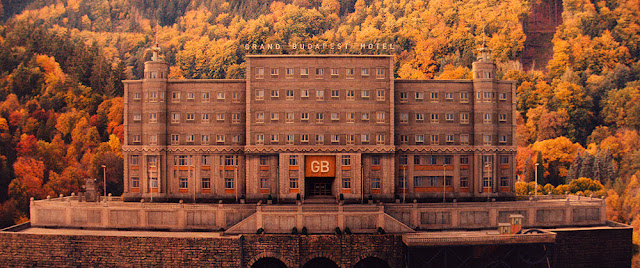Postmodernism within The Grand Budapest Hotel
05:31
The
Grand Budapest Hotel is a 2014 comedy
film directed
by Wes
Anderson. This poster can be seen as postmodern as it is heavily
influenced by the 1930's, especially through the way all of the
characters look. Each of the characters are on a key label to signify
the hotel, the characters are also being represented as 'objects'
that make up the hotel as this is playing on the postmodern technique
of irony. The reason this is irony as all characters are being shown
as equal on the poster, despite them being of different levels of
hierarchy in the film itself, this is very typical of directors who
play on postmodernism, especially when a serious topic of war time is
involved.
Pastiche
is also used within this poster as it slightly resembles a Guess Who
board by how the characters look with 'mug shot' looking pictures
with their names below. This is because the majority of the story is
about a character trying to prove his innocence and proving who the
culprit is, so again this plays on the pastiche of 'Guess Who'.
The
poster also includes historiographic
meta-fiction
as the hotel is probably based on a real hotel that was thriving back
in the 1930's and also looks like a dolls house. This also
incorporates hyper-reality because the hotel looks like a real hotel,
despite it being completely fictional. All of these characters are
strong stereotypes of the 1930's so this humour is showing you that
the poster is purposefully not serious which is typical of post
modern texts.








0 comments